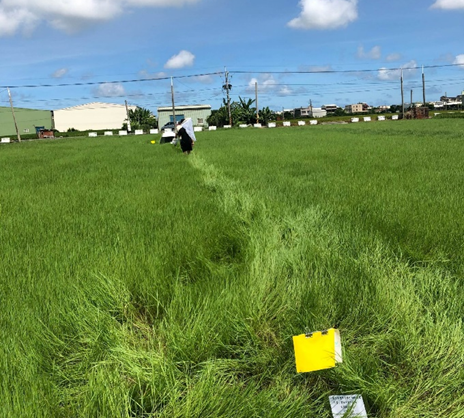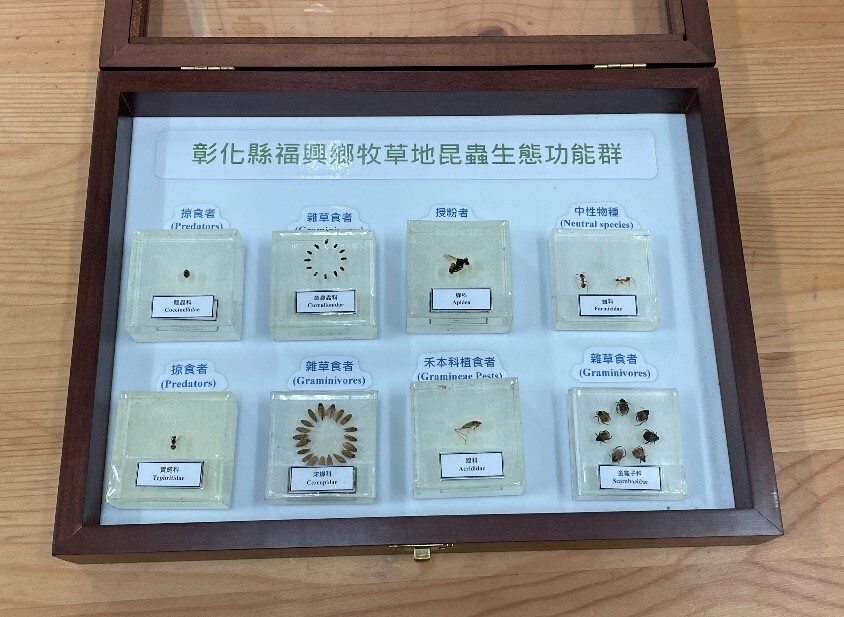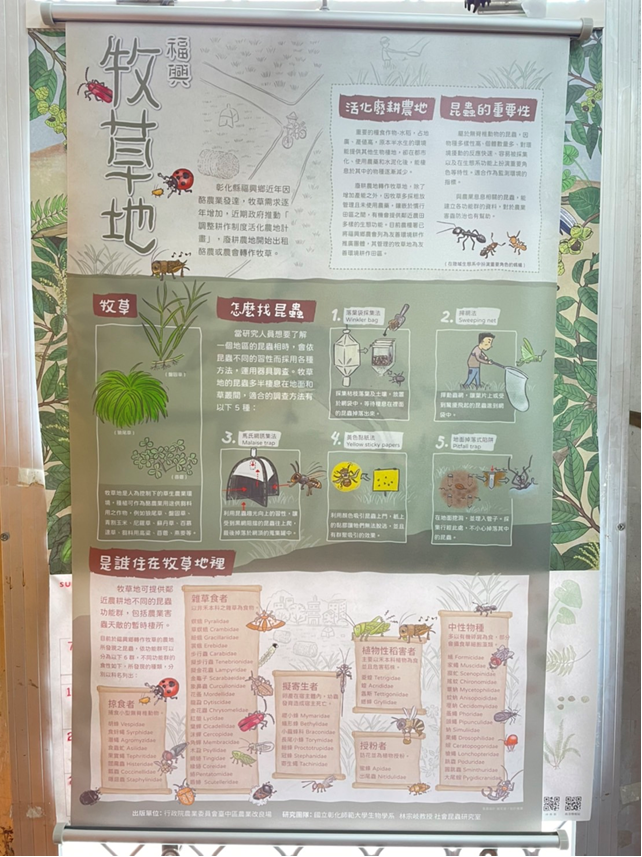SDG 15.3.2 Monitoring IUCN and other conservation species (policies)
There is no distribution of species from the IUCN Red List and the National List of Protected Species on this campus. However, NCUE’s Department of Biology implemented the “Taichung District Agricultural Research and Extension Station, Council of Agriculture, Executive Yuan/Survey on Pasture Insect Resources in Fuxing Township, Changhua County”, to identify, to monitor, and to protect local species affected by the university’s operations.
Taichung District Agricultural Research and Extension Station, Council of Agriculture, Executive Yuan/Survey on Pasture Insect Resources in Fuxing Township, Changhua County:
According to the requirements listed by the National Green Network Construction Plan for Ecological Conservation on biodiversity surveys, a survey was conducted on the insect resources in pastures in the Fuxing Township, Changhua County. Currently, three surveys had been conducted in 2022 on three pastures and two farmlands. Three sampling points had been established at each study sites, while all sample areas and sample points was recorded using GPS coordinates. For both soil-dwelling deciduous layers and crop layers at the grassland study sites, five different standardized insect survey methods were applied, including pitfall traps, Winkler extraction, malaise traps, sweep netting, and yellow sticky traps. The survey records should include information on family-level taxa, quantity, dominant taxa, and functional groups. Further, the composition of the ecological functional groups of insects on the pastures were analyzed to understand the functional groups and the ecological functions that pastures can provide. Posters were designed to explain the functional groups of insects in the pastures in Fuxing Township, while insect taxa and functional groups were made into acrylic specimens for use as exhibits and instruction material. During the 2022 survey, data on a total of 20,652 invertebrates belonging to 6 classes, 20 orders, and 101 families were collected. Among them, a total of 20,215 individuals belonging to class Insecta from 13 orders and 90 families were caught. Among them, the most dominant insect order in terms of number of families was Diptera (26.7%), followed by Coleoptera (21.1%), and Hemiptera (15.6%). In terms of number of individuals at the family level, the most abundant species were Psychodidae and Chironomidae and Musca domestica from Diptera, followed by Cicadellidae from Hemiptera, and Formicidae from Hymenoptera. It can be found that the insect fauna structure of the sampling points in the pastures was stable. The farmland (rice field) near the pastures was cultivated periodically, and the number of species, diversity of clusters, and number of species of the functional groups were affected; however, there was no clustering between other sampling points. This clearly shows that pastures can be restored in Fuxing Township over time. Thus, the existence of pastures around farmlands is essential for sustaining a high levels of biodiversity, related photos as shown in Figures 1-3.
|
|
|
Figure 1. Pastures in Fuxing Township, Changhua County |
|
|
|
Figure 2. Insect fauna specimens found in the pastures in Fuxing Township, Changhua County |
|
|
|
Figure 3. A poster of insect fauna found in the pastures in Fuxing Township, Changhua County |



